30 October 2000 0830H
Zgierz
Maks watched as the Zgierz Milicya wrapped up loading his train with coal. Major Wilk, the Baron’s representative, had already detached his portion of the train, bound for Warsaw.
The newly-freed 270 NATO POWs were mostly useless at the moment, with high fatigue levels from starvation.
STR/AGL/CON for many (most?) are at one. So, for most, according to “Effects of Starvation” would show good recovery after a week of full rations and rest. (pg 148).
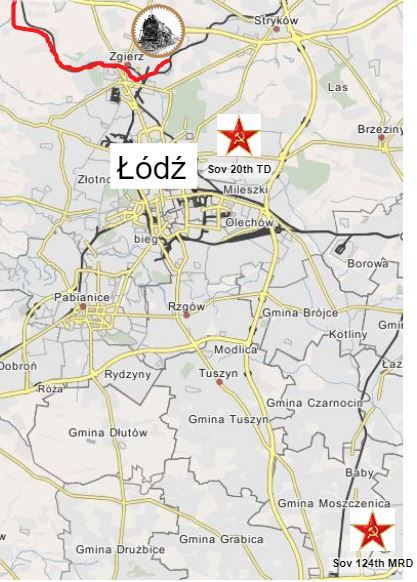 Colonel Suvorov, his arm still in a sling, arrived with Doc Schultz. Elizka was on stretcher. They’d persuaded the Łódź University Hospital to run a CT scan on her chest.
Colonel Suvorov, his arm still in a sling, arrived with Doc Schultz. Elizka was on stretcher. They’d persuaded the Łódź University Hospital to run a CT scan on her chest.
It was the worst kind of news. Metastasized lung cancer; docs figured she had weeks to live. She told Maks that she wanted to die here, not on the road somewhere; Poland is her home. Suvorov offered to take her back with him to the 124th MRD at Piotrokow. She’d be comfortable, under good care at his HQ. Maks agreed. He only knew the man for a day, but he seemed old school, back when military honor meant something.
Suvorov had further bad news. General Zhelnin was awake, hungover and angry.
“You are to be arrested. Time for you and your Americans to leave.” Suvorov told Maks he’d delay Zhelnin’s troops with stalled vehicles, turned/switched road signs, and the like.
“I just burned a bridge,” Suvorov told him. “My time as liaison to the 20th Tank Division is ending I suppose…” he trailed off. “I’ll be fine.” He gave Maks an official-looking document “signed” by Gen Zhelnin, stating that the NATO POWs were being repatriated by the Soviet 4th Guards Tank Army according to Geneva Convention protocols.
“Maybe this will help you if you run into my comrades on your trip west. Or maybe not. Good luck, Maks.”
Maks already had the engine building up a head of steam. His train, now much longer, more box cars filled with 300 personnel.
The train lurched ahead north out of Zgierz, with the Szczur (“Rat”) – their passenger car converted to rail – scouting about a kilometer ahead.
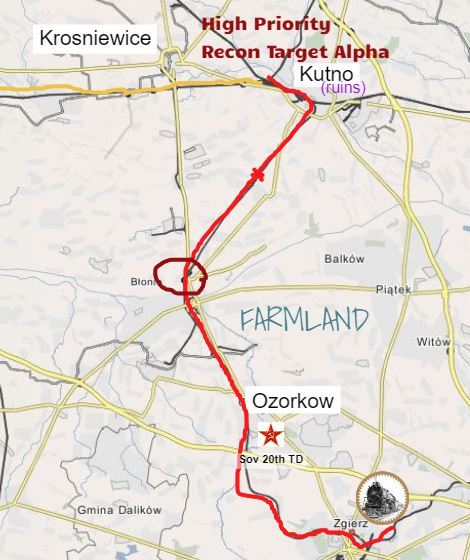 The train reached Ozorkow, the last town garrisoned by the 4th Soviets Guards Tank Army. The Soviet troops at Ozorkow were accustomed to trains arriving, but were puzzled at Maks’ train just passing right by them.
The train reached Ozorkow, the last town garrisoned by the 4th Soviets Guards Tank Army. The Soviet troops at Ozorkow were accustomed to trains arriving, but were puzzled at Maks’ train just passing right by them.
Beyond Ozorkow was open farmland. Then, not 20 klicks beyond, the Rat reported a small highway bridge out.
The overpass was a mess. Engineer Straczynski quoted a 12-24 hour repair job before they could proceed north.
Maks swore as it was either fix the bridge or return south to the Soviets… yeah, negative on that. So he ordered the bridge repair, and left the train idling just enough to maintain a head of steam. Thankfully, he had plenty of coal.
Nervous the whole time that Zhelnin could well be sending troops in pursuit, Maks worked with his men. Fortunately, things fell into place and the bridge was ready in “only” 12 hours. Exhausted, and with the day wasted, they continued north about 15 kilometers and parked the train there for the night.
31 October 2000
Kutno was ruins, deserted, wrecked by the fighting.
Now the train was heading west.
Near Krosniewice, they encountered another of those horse-drawn rail wagons, ridiculously overloaded, and very slow. It was a merchant, a Pole. Maks talked with him, but the man – in telling of where he was selling his wares – was saying a word Maks couldn’t understand. It wasn’t a Polish word. Oddly enough, it was poorly-pronounced English: “Bartertown”.

A makeshift community had sprung up at the 4-way rail intersection east of Kolo, run by some Americans. Only been there a couple of months. Mostly pitched tents, and shacks, the merchant said. Anything could be bought and sold in Bartertown. Guns, prostitution, gambling, whatever. But most of the trade was mundane goods.
Maks offered to take the merchant and his horses on his train, and push his rail wagon to Bartertown, if only to get the guy out of his way.

Bartertown was a squalid camp, sitting just off the rail junction, with a rutted access road connecting to the highway one klick to the north. It reminded Maks of a Third World slum. But there was much for sale as Maks and team walked the muddy paths.
“City” on Equipment Availability table (Twilight 2000 v2.2, page 274).
A sad hungry caged bear for sale. A forklift and a stack of pallets for trade. Three Honda high-pressure portable water pumps (alcohol-burning). A Black Madonna relic, claimed to be the original (seller wanted barter equivalent of a 2½ ton truck)… Maks snorted at the fake relic. They’d found the real Black Madonna months ago.
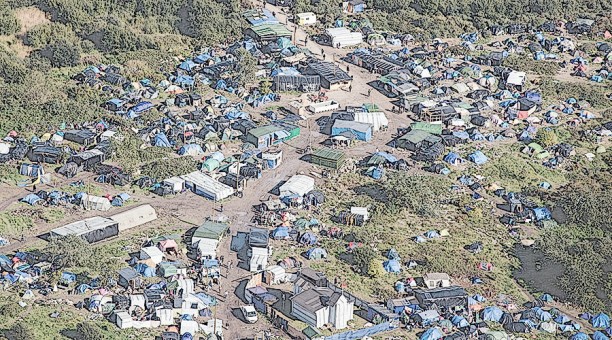
One thing in short supply was food. Even the farmers here were holding back. Winter was around the corner, and nobody wanted to part with their meager foodstuffs.
The place was run by an American, Corporal Sumack and three fellow vets of the US 5th Division, who employed ten local toughs to keep the peace. Those Poles had taken American names. It amused Maks to no end that one thug was named “Jeff” and he couldn’t even pronounce his own name correctly.
Maks had a lot of men with him; Sumack and his cronies kept a careful distance.
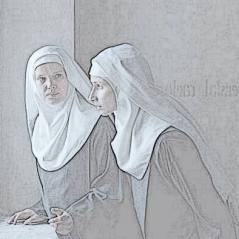 As if Bartertown wasn’t strange enough, Maks saw another incongruous sight: Two Polish nuns had a booth as well, with a trio of civilian guards shouldering M-16s. Intrigued, he looked over their wares: A lot of random personal effects… mirrors, silverware, small jewelry.
As if Bartertown wasn’t strange enough, Maks saw another incongruous sight: Two Polish nuns had a booth as well, with a trio of civilian guards shouldering M-16s. Intrigued, he looked over their wares: A lot of random personal effects… mirrors, silverware, small jewelry.
Also the nuns were selling cases of Jack Daniel’s whisky, small baskets of toilet paper (wrapped in individual brown packets, standard US military issue), and little single-serve bottles of Tabasco.
That last bit triggered a memory. The 5th Division, in its aborted breakout of Kalisz, had left behind the bulk of its logistical supplies in its temporary camp, including a few tons of MREs. That much food, no matter who got it, would have been noticed in this hungry region. Nobody seemed to know what happened with the stockpile of military rations.
Yet here these nuns were from Kalisz, and selling TP and Tabasco sauce from MREs.
Maks engaged them in conversation, speaking of his plan to take many Americans to the evacuation at Bremerhaven, Germany. And they needed food for the journey.
The nuns were reticent about the subject. When Maks asked about Sister Basia, a contact made last Summer, they confirmed that she was in Kalisz, and a fellow Sister of the Order of Saint Clare, at their convent (Klasztor Ubogich Sióstr Świętej Klary). They suggested Maks speak to Sister Basia directly, as she might have a solution for Maks.
Maks traded for their cases of American whisky, overpaying with several rifles and ammunition. The nuns looked in askance at the offered trade in weapons of war, but their bodyguards nodded their heads emphatically, and so the payment was accepted.
Maks and company proceeded west, and were stopped by yet another damaged bridge east of Kolo. Repairs went until dark and would continue the next day.
1 November 2000
Two weeks remained before the fleet would depart Bremerhaven.
Finishing the bridge repairs took the rest of the morning. The train passed through Kolo, startling the citizens, who were clearly unaccustomed to rail traffic.
Well out of Kolo, the train encountered some missing track, but it was an easy repair, only delaying their travel by an hour. By 1500H, they were approaching the outskirts of Konin, Poland.

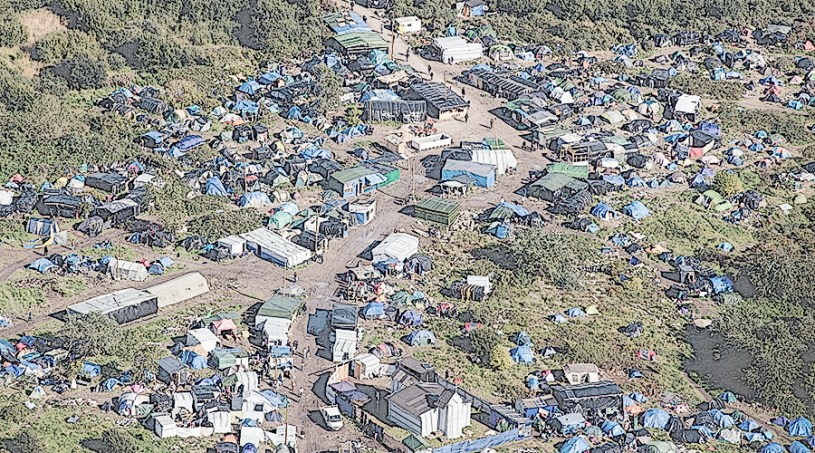
Oh no what have you done? Nuns with Guns! 😉
LikeLiked by 1 person
I’m enjoying the campaign. Tell me, how are the players doing, with out combat? Are there itchy trigger fingers?
LikeLiked by 1 person
My brother is in charge, and he is very cautious. The only fight he’s looking for is when he can choose the circumstances. Sometimes fights come to him anyway.
LikeLiked by 1 person